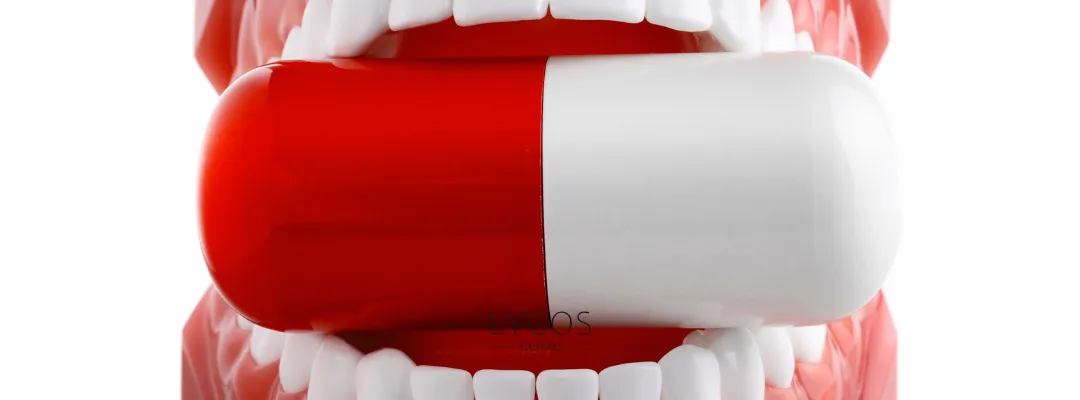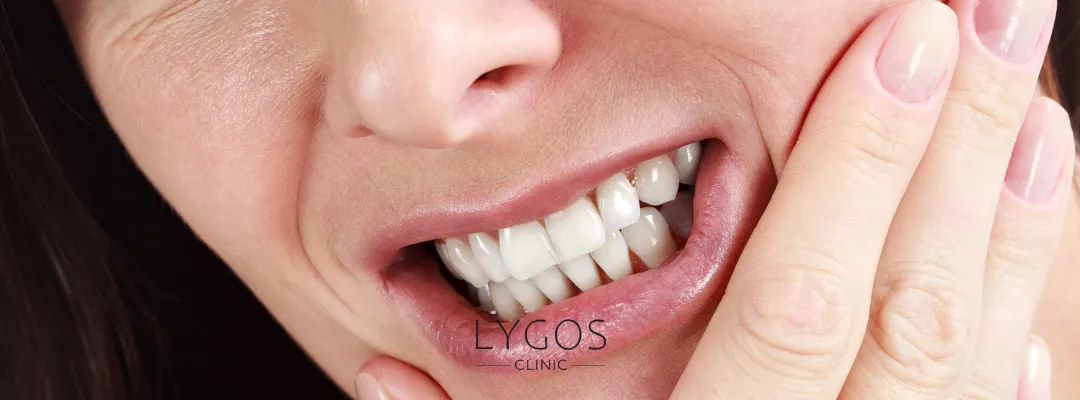What Helps Relieve Toothache?
Toothache is a common health issue that negatively impacts people’s daily lives. Often stemming from problems related to oral and dental health, the severity of toothache can vary from mild discomfort to unbearable pain. There are numerous potential causes of toothache, including cavities, gum problems, cracked teeth, or trapped food particles between teeth. The intensity of the pain can range from mild discomfort to excruciating agony.
However, in mild cases, temporary relief can be achieved through simple home remedies. These methods may vary depending on the cause of the pain, but there are generally effective approaches that are commonly used. Cold and hot compresses are a widely employed method for alleviating toothache. Cold compresses can reduce swelling when applied to the painful area, while hot compresses can relax muscles.
However, it is crucial to use both methods without excessive application. Pain relievers can also be effective in managing toothache. Non-prescription medications such as aspirin, ibuprofen, or acetaminophen can help reduce pain and inflammation. However, consulting a healthcare professional is important before using these medications to determine the appropriate dosage. This introduction aims to focus on basic strategies for relieving toothache at home, capturing the reader’s attention and generating interest in the subject.
Cold and Hot Compresses
Cold and hot compresses stand out as effective and easily applicable methods for relieving toothache. This method aims to provide instant relief to the pain and has the potential to reduce symptoms such as inflammation and swelling. Cold compresses can be effective in alleviating pain caused by gum infections, teething, or trauma. Cold application involves a quick cold compress or ice pack applied to the painful area.
Cold can constrict blood vessels, reducing blood flow and decreasing swelling in inflamed tissues. However, it is essential to avoid direct skin contact and not to use cold for excessively long periods. Hot compresses are generally effective in relieving toothache caused by muscle tension. Heat application can be done with a hot water bottle, warm towel, or a warm water bottle applied to the painful area. Heat increases blood flow, relaxing muscles and contributing to pain relief.
However, attention should be paid to the temperature, and excessive heat application should be avoided, as it may cause burns or damage to tissues. In both cases, the durations of cold and hot applications should be carefully controlled. Typically, application for 15 to 20 minutes is recommended, followed by a resting period for the skin.
Taking a break between applications can prevent damage to the skin. In summary, cold and hot compresses offer an effective and natural way to manage toothache at home. However, it is important to use both methods without exaggeration and according to the severity of the pain. If the pain persists or intensifies, consulting a healthcare professional is the most appropriate approach.
Pain Relievers

Toothache is a commonly encountered discomfort that often requires urgent intervention and effective treatment. In this context, non-prescription pain relievers are another commonly used method for alleviating toothache. Aspirin, ibuprofen, and acetaminophen are medications that contain substances known to be effective in combating pain and inflammation. Aspirin is known as a non-steroidal anti-inflammatory drug (NSAID) that reduces inflammatory conditions and alleviates pain.
Toothache is often caused by inflamed tissues due to various factors, and aspirin can help control this condition. However, since it can cause stomach discomfort in some individuals, those with such conditions should consult a healthcare professional. Ibuprofen is also an NSAID with properties that reduce pain, control inflammation, and lower fever. It can be effective in severe cases of toothache, but individuals with stomach problems, kidney issues, or those using blood thinners should consult a professional before use.
Acetaminophen is a pain reliever and fever reducer. However, it does not have an effect on inflammation. Individuals with liver problems should be cautious about the dosage due to the potential pressure it may exert on the liver. The indiscriminate use of over-the-counter medications can lead to side effects. Therefore, consulting a healthcare professional before using any medication is crucial.
Additionally, the long-term use or exceeding the recommended dosage of these medications can increase health risks. In conclusion, non-prescription pain relievers can provide a temporary solution for alleviating toothache. However, consulting a healthcare professional before using these medications helps minimize potential risks.
Saltwater Gargle
Saltwater gargle is a commonly used natural and effective method for relieving toothache. This simple yet powerful solution can be highly effective, especially in providing relief for pain caused by gum infections, gum inflammations, or oral pain due to microbes. Adding a teaspoon of salt to a cup of warm water is the basic step in preparing a saltwater mixture. Warm water helps dissolve the salt and provides a more comfortable feeling during application.
It is crucial to ensure that the water is never too hot before gargling, as excessive temperature can harm oral tissues. The effects of saltwater gargle include pain relief, reduction of swelling, and inflammation. Salt possesses natural antiseptic properties, fighting against microbes and aiding in cleansing the mouth. Conditions such as gum infections or mouth ulcers can benefit from regular use of saltwater gargle.
During application, it is important to swish the prepared saltwater mixture in the mouth for a few minutes. This allows the mixture to reach the painful area and come into contact with microbes. After gargling, the mouth should be rinsed with water, and the mixture should not be swallowed. Saltwater gargle is a preferred solution due to its ease of application at home and low cost.
However, if toothache persists or worsens, consulting a dentist is important. Saltwater gargle provides temporary relief and does not treat underlying dental problems. In conclusion, saltwater gargle can assist in the temporary relief of toothache as a natural home remedy. However, for long-term effectiveness, consulting a dentist and receiving necessary treatment is important.
Dental Floss and Dental Care
Toothache is often caused by fundamental oral health issues such as gum problems or tooth decay. Therefore, regular brushing, flossing, and routine dental check-ups are essential steps in preventing and reducing toothache. Regular brushing forms the foundation of oral hygiene. Brushing teeth at least twice a day using the right brush and toothpaste helps remove plaque and bacteria. The accumulation of plaque can lead to tooth decay and gum problems over time.
Thus, regular brushing is the first step in maintaining oral health. In addition to brushing, using dental floss is crucial. Using dental floss helps clean food particles and plaque between teeth, contributing to the prevention of tooth decay and gum diseases. Dental flossing is especially effective in areas where access is challenging.
Regular dental check-ups are a critical part of maintaining oral health and preventing potential issues. Dentists can identify tooth decay, gum diseases, and other potential problems. Early detection of issues allows for more effective treatment, preventing toothache. In addition to oral hygiene, a healthy diet and regular water consumption positively impact overall oral health. Avoiding sugary and acidic foods can reduce tooth decay and improve gum health. In conclusion, regular brushing, dental flossing, and dental check-ups are inevitable for preventing toothache and maintaining overall oral health. These simple yet effective steps can contribute positively to general health.
It is essential to remember that if toothache becomes persistent or severe, consulting a dentist is crucial. Toothache may seem like a minor issue, but when neglected, it can lead to more serious problems. Regular dental check-ups are vital for maintaining oral and overall health. Remember, oral health is a significant part of your overall health, and with proper treatment and measures, long-term relief can be achieved.
Peppermint Oil or Peppermint Tea
Peppermint oil and peppermint tea are known as natural and effective pain relievers offered by nature. These natural products can be easy and reliable home remedies for alleviating and soothing toothache. Peppermint oil, derived from the essence of the peppermint plant, is often used in aromatherapy and health applications. Applying a few drops of peppermint oil to a cotton swab allows for direct application to the painful area. This aims to take advantage of the cooling and soothing effects of peppermint oil.
Peppermint oil can help relieve pain by increasing blood flow to the painful area and relaxing muscles. However, before applying peppermint oil directly to the skin, it is important to conduct a skin sensitivity test and use a diluted form, as pure peppermint oil can be harmful to the skin. Peppermint tea can also be an effective solution for toothache. The menthol contained in peppermint has properties that can alleviate and soothe pain.
Adding fresh peppermint leaves or a peppermint tea bag to a cup of hot water can provide a soothing effect to the painful area. Peppermint tea can also assist in combating oral microbes. Both methods offer a natural and easily applicable solution for relieving toothache at home. However, these natural remedies only provide temporary relief and do not treat the underlying cause of toothache.
If toothache persists or worsens, consulting a dentist is essential. The use of natural products such as peppermint oil or peppermint tea requires individuals to check for any allergies or sensitivities. Additionally, when specific situations such as pregnancy or certain health conditions are present, consulting a healthcare professional is always important.
In conclusion, peppermint oil or peppermint tea can be natural and easily applicable methods for relieving toothache. However, for long-term relief and healthy oral care, consulting a dentist and receiving professional advice is essential.
Consulting a Dentist

Toothache is a discomfort that negatively affects the quality of life. If toothache persists or becomes severe, there may be a serious underlying problem, and seeking professional help from a dentist is crucial. At this stage, self-administered home remedies may provide temporary relief, but an expert evaluation is necessary to determine the root cause of the toothache and establish an effective treatment plan.
The causes of toothache can include cavities, gum diseases, cracked teeth, nerve inflammations, or gum infections, among various factors. These issues can lead to more severe complications if left untreated. Consulting a dentist is the first step in identifying the cause of toothache and evaluating appropriate treatment options.
Dentists often use X-ray examinations, dental check-ups, and, if necessary, other diagnostic tests to assess oral and dental health. This evaluation helps identify the cause of toothache and assists in creating an appropriate treatment plan. Treatment options may include procedures such as filling or crowning for cavities, cleaning and scaling for gum diseases, or root canal treatment for nerve inflammations.
Early intervention can help more effectively treat toothache-related issues. Additionally, regular dental check-ups allow for the early detection of problems and prevention of more serious conditions. If the pain persists or intensifies, seeking prompt attention from a dentist without delay is important.
Regular dental check-ups are critical for maintaining oral health and preventing potential issues. In conclusion, toothache can be a sign of a serious underlying.
Toothache

In conclusion, toothache is a common issue that can disrupt daily life. However, various methods are available for managing and relieving toothache at home. Cold and hot compresses, pain relievers, saltwater gargle, dental flossing, and natural remedies like peppermint oil or peppermint tea offer temporary relief.
Nevertheless, these methods only address symptoms and do not substitute professional dental care. Regular dental check-ups, proper oral hygiene practices, and timely intervention by a dentist are crucial for long-term relief and overall well-being. Remember, oral health is an integral part of general health, and taking the right steps can lead to lasting relief and prevent more serious complications. I
f toothache persists or worsens, do not hesitate to seek professional dental care promptly. Note: This comprehensive guide provides information on various home remedies for toothache, emphasizing the importance of consulting a healthcare professional for persistent or severe



